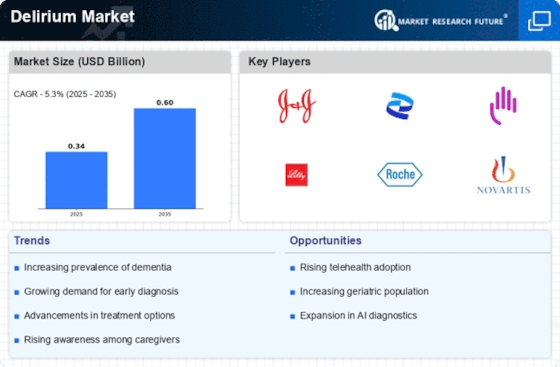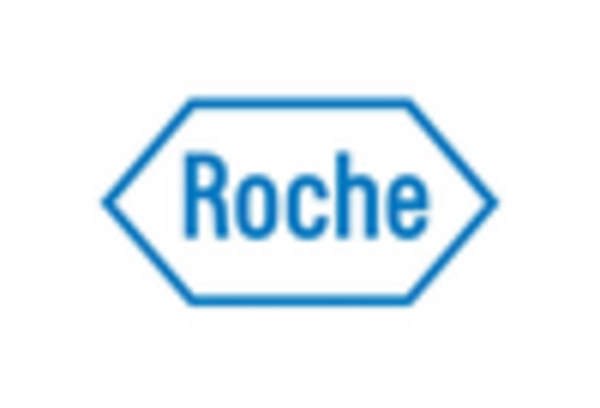Market Trends
Key Emerging Trends in the Delirium Market
The market for delirium, a complex and frequently underdiagnosed neuropsychiatric syndrome portrayed by intense changes in consideration and comprehension, is seeing expanded awareness and acknowledgment among healthcare experts. Improved comprehension of delirium's clinical elements and its effect on understanding results has prompted upgraded location and determination in different healthcare settings. Delirium is common across different healthcare settings, including emergency clinics, long haul care offices, and intensive care units (ICUs). Its event is especially normal among more seasoned grown-ups, people with hidden ailments, and those going through surgeries or encountering strong disease, featuring the assorted patient population impacted by delirium. Delirium applies a huge effect on quiet results, adding to delayed emergency clinic stays, expanded healthcare costs, higher paces of unpleasantness and mortality, and long-haul mental disability. Healthcare suppliers perceive the significance of early recognizable proof and management of delirium to moderate its antagonistic impacts and work on persistent results. Delirium has a multifactorial etiology, frequently originating from a mix of fundamental ailments, medicine impacts, ecological elements, and psychosocial stressors. Healthcare experts direct complete assessments to recognize and address inclining and encouraging elements adding to delirium commencement and movement. The administration of delirium includes a complex methodology incorporating pharmacological and non-pharmacological interventions. Pharmacological therapies might incorporate antipsychotic medications, tranquilizers, and medications focusing on basic ailments adding to delirium. Non-pharmacological interventions center around natural adjustments, mental feeling, rest cleanliness, and assembly to forestall and oversee delirium episodes. Screening and assessment devices assume a critical part in the early recognition and determination of delirium. Healthcare suppliers use normalized devices like the Confusion Assessment Method (CAM) and the Delirium Observation Screening Scale (DOSS) to assess patients for delirium side effects, empowering opportune mediation and mangement deliberately. Healthcare establishments incorporate delirium conventions and clinical pathways into their training rules to normalize delirium the board rehearses and work on understanding results. Multidisciplinary groups team up to create and execute proof-based conventions that stress early acknowledgment, counteraction, and the executives of delirium across care settings.


















Leave a Comment